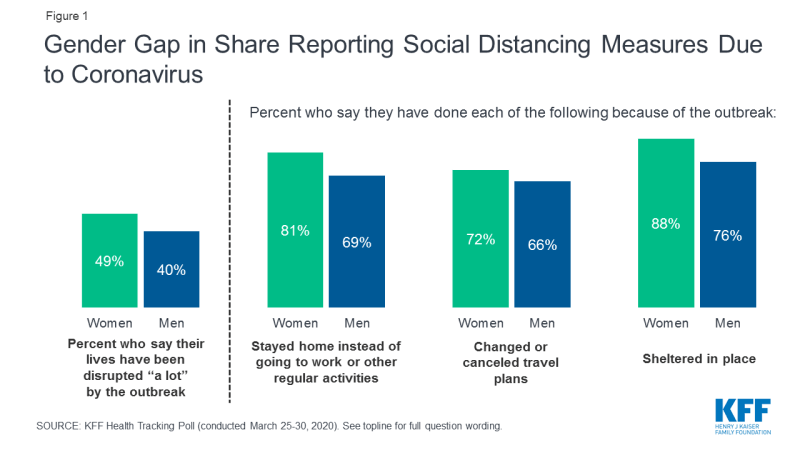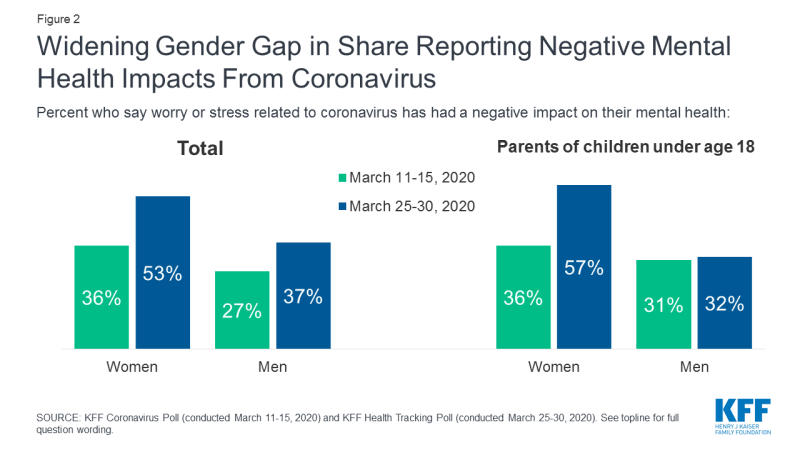Is There a Widening Gender Gap in Coronavirus Stress?
Liz Hamel and Alina Salganicoff
Published:
The KFF Coronavirus Poll conducted in March 11-15, 2020 found that there were some gender differences in how men and women were experiencing the pandemic, with women more likely to worry about both the health and economic effects on their families, and more likely to report taking protective actions.
As the virus and its consequences have spread across the country, the latest KFF Health Tracking Poll, conducted March 25-30, 2020 finds many of these gender differences persist, and at least one has widened considerably. Women remain somewhat more likely than men to say their lives have been disrupted “a lot” by the outbreak (49% vs. 40%). And while self-reported social distancing measures have increased dramatically for everyone, women are more likely than men to say they’ve stayed home instead of going to work or other regular activities (81% vs. 69%), changed or canceled travel plans (72% vs. 66%), or sheltered in place (88% vs. 76%).
One gender gap has gotten strikingly larger over this two-week period, particularly among parents. Women overall are now 16 percentage points more likely than men to say that worry or stress related to coronavirus has had a negative impact on their mental health (53% vs. 37%). Among parents of children under age 18, the gender gap is a striking 25 percentage points; 57% of mothers vs. 32% of fathers say their mental health has gotten worse because of the pandemic. In the poll taken just two weeks prior, the gender gap among all adults was 9 percentage points (36% vs. 27%) and among parents it was just 5 percentage points (36% vs. 31%).
The gender gap in self-reported coronavirus stress is not surprising given what we know from prior research on gender roles, family caregiving responsibilities, and women’s workforce participation. KFF surveys have consistently found that moms take the lead roles in managing family health and that working moms are more likely than dads to stay home (often without pay) when kids are sick. The safety net for working moms when their kids get sick often has been friends and family, but the COVID outbreak and resultant social distancing and stay at home orders have taken these options off the table for many. Other research conducted before the outbreak found that women still shoulder the majority of housework, are more likely to be the primary caregivers for frail and aged family members than men, and have a baseline of experiencing anxiety and depression at greater rates than men. All these factors add stress to women’s lives under normal circumstances; the current crisis requires many moms to be teachers, nurses, and family mediators at home with little respite, with many also continuing to manage workplace responsibilities.
As social distancing measures and shelter-in-place orders become more widespread, along with job losses and school closures that lead to increased economic anxiety and increased demands on parents’ time, KFF will continue tracking the self-reported mental health effects of these pressures on both women and men.


